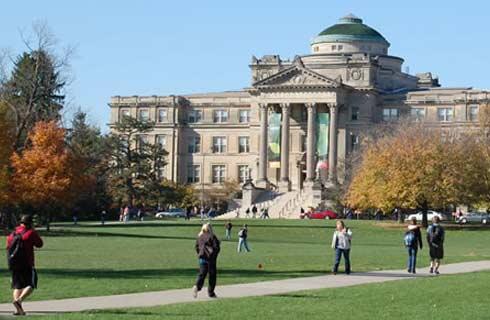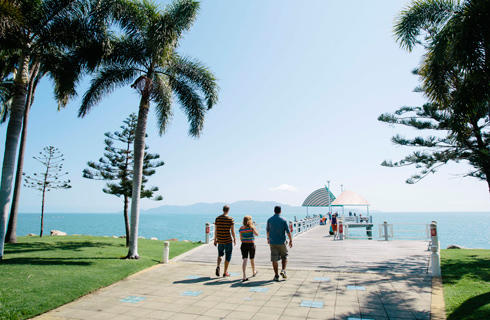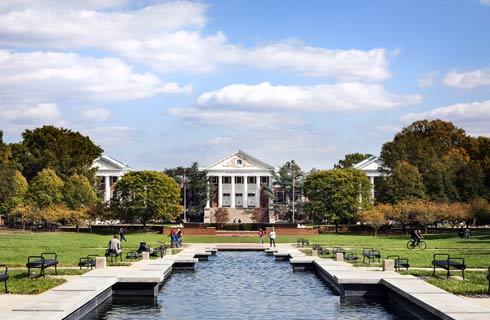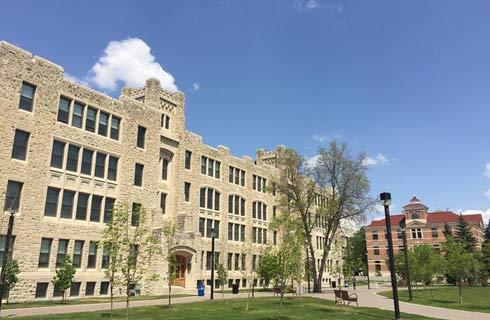渔业和海水养殖理学硕士
Master of Science in Fisheries and Mariculture


学历文凭
Masters Degree

专业院系
Department of Life Sciences

开学时间

课程时长

课程学费

国际学生入学条件
An applicant with a GPA of less than 3.0 (on a 4-point scale, or equivalent) on the last 60 hours of undergraduate coursework is typically not competitive
An applicant with a GPA of less than 2.5 (on a 4-point scale, or equivalent) on the last 60 hours of undergraduate coursework will not be considered.
An applicant with a GPA of between 2.5 and 2.9 (on a 4-point scale, or equivalent) on the last 60 hours of undergraduate coursework is not eligible to be supported as a teaching or research assistant.
An essay is required. This essay (up to 1000 words in length) should include discussion of educational and professional goals and potential areas of research interest, as well as a summary of discussions between the applicant and faculty member(s) who are interested in advising the applicant and taking them on as a student in their lab.
Three letters of recommendation
Send a recommendation request
Upload letter of recommendation
Application requirements for international applicants:
Copy of current Visa (if applicable)
English Language Proficiency. Official TOEFL/IELTS scores are required for international applicants from countries where English is not the native language. (Within two years of the date application).
Official TOEFL score minimum paper-based score of 550 or internet-based score of 79-80
Official IELTS score minimum 6.5
GPA- 3
IDP—雅思考试联合主办方

雅思考试总分
6.5
- 雅思总分:6.5
- 托福网考总分:79
- 托福笔试总分:550
- 其他语言考试:NA
CRICOS代码:
申请截止日期: 请与IDP联系 以获取详细信息。
课程简介
The Fisheries and Mariculture Program offers an M.S. degree with a choice of emphasis in either fisheries or mariculture. Our students enjoy a low student-faculty ratio and opportunities to study ecologically and commercially important Gulf of Mexico and Texas species. Students entering the program have the opportunity to receive financial support from assistantships, fellowships, or scholarships awarded by the university and by private and public agencies. Returning Peace Corps volunteers who have completed their assignment are eligible for the Paul D. Coverdell Fellowship. Faculty members supervise student research on topics such as fisheries ecology, larval physiology, habitat restoration, aquatic animal culture, diseases, and nutrition. Students may conduct their research at university facilities and in the surrounding aquatic environments, as well as nearby partner institutions, including the Texas A&M AgriLife Mariculture Research Facility, Texas Parks and Wildlife Department Marine Development Center fish hatchery, and Texas State Aquarium. Our students acquire the cutting edge science and technological skills necessary for positions in public and private sectors of the fisheries and mariculture industries, as well as undertaking reserach allowing them to pursue further studies at the Ph.D level. Student research topics are as varied as FAMA faculty expertise and have included fish culture for stock enhancment, ocean acidification, algae biofuels, use of biofloc in the culture of Pacific white shrimp, disease, and relative value of estuarine habitats for finfish and crustaceans. Faculty and student researchers use an array of quantitative research tools including molecular techniques, statistical analysis and GIS, as well as traditional field sampling methods.
相关申请
 预科
预科 奖学金
奖学金 实习机会
实习机会 在校学习
在校学习 跨境学习
跨境学习 校园授课-线上开始
校园授课-线上开始 在线/远程学习
在线/远程学习
开学时间&学费
学费信息仅供参考,请与IDP联系以获取详细信息
| 开学时间 | 时长 | 学费 | 地点 |
|---|
本校相关课程

International Year
学历文凭
Foundation for Undergraduate
开学日期
课程费用总额


Pre Masters Program
学历文凭
Foundation for Postgraduate
开学日期
课程费用总额


International Year
学历文凭
Foundation for Undergraduate
开学日期
课程费用总额


International Year
学历文凭
Foundation for Undergraduate
开学日期
课程费用总额


Pre Masters Program
学历文凭
Foundation for Postgraduate
开学日期
课程费用总额


Intensive English
学历文凭
English
开学日期
课程费用总额

其他相关课程

渔业和水产养殖学历文凭
 温哥华岛大学
温哥华岛大学学历文凭
Graduate Diploma
开学日期
课程费用总额


渔业和水产养殖技术文凭
 温哥华岛大学
温哥华岛大学学历文凭
Bachelor Degree
开学日期
课程费用总额


渔业和水产养殖学学士学位
 温哥华岛大学
温哥华岛大学学历文凭
Bachelor Degree
开学日期
课程费用总额


鱼类和野生动物技术高级文凭
 弗莱明学院
弗莱明学院学历文凭
Bachelor Degree
开学日期
课程费用总额


渔业科学哲学博士
 纽芬兰纪念大学
纽芬兰纪念大学学历文凭
Ph.D.
开学日期
课程费用总额


海洋资源文凭–渔业和水产养殖
 新斯科舍社区学院
新斯科舍社区学院学历文凭
Bachelor Degree
开学日期
课程费用总额









 美国
美国
